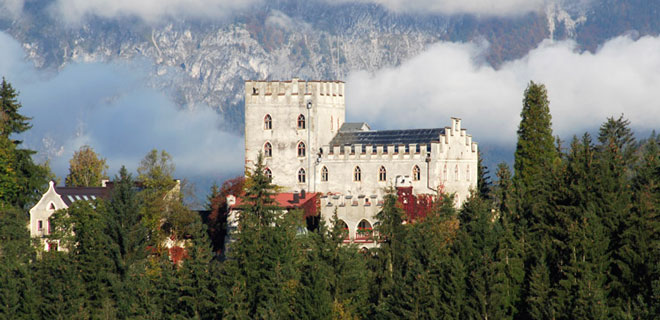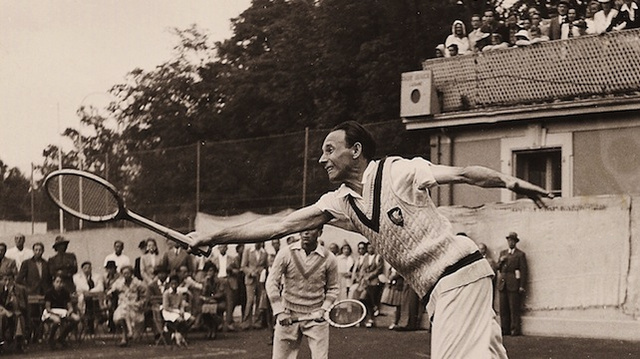“They’re looking for a way in,” he said. :They probably won’t try a direct assault down the road. And, they’re probably not sure of our numbers. Rotate the GIs into the main part of the castle in pairs so they can get some food.” He headed back inside to Itter’s great hall and found the French huddled around its large fireplace, where logs crackled in glowing members as a fire rose. Men and women rubbed their hands as if they’d just come in from a frigid walk.
He asked why they didn’t stay in the cellar. “We were cold,” was their answer. “Can we stay up here?”
“Alright, but stay away from the windows, and make sure you don’t leave the building.” He headed off and up a flight of stairs to check on the Germans. He found a young officer who communicated to him in hand signals about where he placed his men. Lee smiled and noticed something… The first rays of light starting to peek from the horizon. He checked his watch. Time had passed quickly since his roust from the bed, and now he knew this motley contingent of his was about to be tested
A German MP-40 SMG stuttered one floor below him, catching him by surprise. He sped down the steps and was joined by Gangl, running to the sound. Down a lengthy hallway they raced, reaching the suspect’s doorway as bullets tore apart curtains and glass showered a hapless Private who hugged the floor. The two men dove and grabbed the man’s ankles, pulling him out into the hallway as bullets continued thudding into his former position, answered by the deep bark of ‘Besotten Jenny’s’ .50 caliber.
Gangl propped the man up against the wall and screamed curses and questions at him, to which he replied in quick, anxious sentences.
“He says he saw a small group of SS coming up the slope. He opened up on them before he had to take cover.” Gangl calmed himself and checked with his lookouts, who confirmed the area near the walls still empty and safe.
Lee knew it was no longer nervous jitters. It was another aborted attempt to scale the wall, just like a few hours before. He sensed they were doing final probes of his force, and somewhere out there someone was going to decide to launch a main assault, perhaps minutes from now.
After eight o’clock, more gunfire sounded, but only from American weapons. It was because one of Gangl’s men had vaulted the walls and ran into the trees toward the hidden SS positions. Just as disturbing, none of Itter’s German’s fired a single shot at the man fleeing.
Gangl spoke with Lee and reassured him of his men’s loyalty. He also spoke to his soldiers, urging that the best chance they had for survival was to join the American’s and stay here until the rest of Lee’s unit arrived. However, this little episode brought with it foreboding. The SS would soon speak to the man and discover the size of their force, and the weaknesses of its defenses.
They confirmed this later on, as they looked with binoculars out over the castle’s northwest side and focused on a dreadful sight. A 20mm anti-aircraft gun and a deadly 88mm anti-tank gun were being rolled into place along a tree line’s edge, some 800 yards away.
A nudge by Gangl brought Lee’s attention to something more menacing: a convoy of trucks stopped far away on the main road and disgorged more SS, who quickly dispersed into the thick woods leading up to the ravine.
What Lee and Gangl could not know was that these SS had been given a simple order. Not only were they to take the castle, but kill everyone in it as well, especially the French prisoners. No survivors were allowed under any circumstances.
“We’ve got to get help.” To his dismay, Lee discovered ‘Besotten Jenny’s’ radio no longer worked. One of the Germans suggested the castle’s radio room. There, Lee found a powerful transmitter, which he turned over to Gangl. Some dials were turned and a call went out to a hotel in Worgl named Neue Post Inn. He spoke to a member of the local resistance who assured him he would go and find the Americans.
He then contacted three more of his men and told them to get to the castle, which they did after some forty-five minutes of avoiding roadblocks and speeding to ditch their car the last hundred or so yards away and sprint through the gate.
Gangl shook their hands and assigned them to their posts right before ten o’clock, when the battle for Schloss Itter officially began.
The 88 belched and sent a shell slamming into the castle’s side. As the stone shards rained down, somewhere another gun fired, ripping into ‘Besotten Jenny’, which jolted backwards and shot flames up from the engine deck, which grew bigger and hotter by the second, sending the American’s standing watch scurrying back into the courtyard, followed by the tank’s driver. Seconds later, Besotten Jenny blew up into a huge fireball.
SS soldiers poured into the ravine, not even pausing to look up as several machine guns raked the many sides of the castle covering their race to the wall.
Gunfire streamed back from the windows and roof, sewing hundreds of rounds into their ranks. The Germans and Americans laid down a steady stream of fire and were immediately joined by an unexpected ally. The French. They had retrieved their weapons and rushed to position, joining the defenders in stuffing clips, cycling bolts and picking off the SS, sending them tumbling and tripping when they tried to mount the walls. Sweet revenge at last! Five years in the making for these vanquished men as they fought and killed their once-oppressors with seething hatred dripping from their clenched teeth.
Nearby, Lee and Gangl raced down some steps into the courtyard and noticed the elderly Reynaud near the wall, firing his submachine gun with the bright-eyed wonder of a youthful recruit.
Impressed, Lee looked over at the German and smiled. The two then parted, heading to be with their men as the battle raged on.
At one point in the passing hours, Lee returned to the radio room and made contact with something he never knew existed. A relief column of tanks and infantry headed toward Itter. Just before he was able to pass word about the size of the force assaulting them and possible roadblocks, the line went dead.
“I’ll go get help.” It was offering to go over the wall and find the column. He waited as the battle continued until that brief moment when the firing abated, then scaled the castle’s north wall and headed off into the woods, careful to avoid the SS positions.
Three o’clock came and brought with it concern. The battle was shifting, as more of the camouflaged attackers emerged and fired at the smoke and flash spewing from every window. One of these rounds hit Gangl, killing him before he hit the ground, while outside Lee realized he was running out of ammunition. A flurry of his shouts pulled men off the wall and back into the castle’s upper floor for an expected last stand. The SS felt the slack in return fire and readied their ropes, while on the main road one of them lined up a PanzerFaust disposable anti-tank weapon to blast open the gate.
He never fired. His head swiveled round and his jaw dropped at the sight.
The SS in the ravine turned around and fled back into the woods toward some distant firing growing heavier by each stamp of their boots. Everyone in the castle stopped shooting and looked out on the scene.
“Panzer!” a German defender called.
A Sherman tank named ‘Boche Buster,’ followed by several trucks of American soldiers and resistance fighters, rolled into view, as the rest of the relief force commenced a sweep of the village. The SS broke and ran, and those that tried to resist were killed quickly, as their hastily prepared front disintegrated under the sheer weight of numbers.
Schloss Itter stood above it all, battered and pockmarked, but nonetheless welcoming its newest caretakers as the front gate opened and the first squads of Americans trudged through to mingle with Lee and his little army. Cuckovic was among them, and the embraces became many. They shared their experiences before assembling to move out. For the French, it was to home and an uncertain future. For the Germans, it was to a POW camp, then a chance to rebuild a peaceful nation. For Cuckovic, it was to a displaced persons facility, while for the Americans, it was back to their units for the final hours of the war and the celebration of V-E Day.
For their contribution to the Battle of Schloss Itter, Lee and Blasse received the Distinguished Service Cross and Silver Star, respectively.
Twenty-eight years later, in 1973, just before his death, Jack Lee was asked about that bizarre stand in the war’s final days. His reply was simple:
“Well, it was the damndest thing.”











COMMENTS